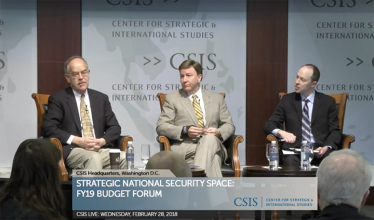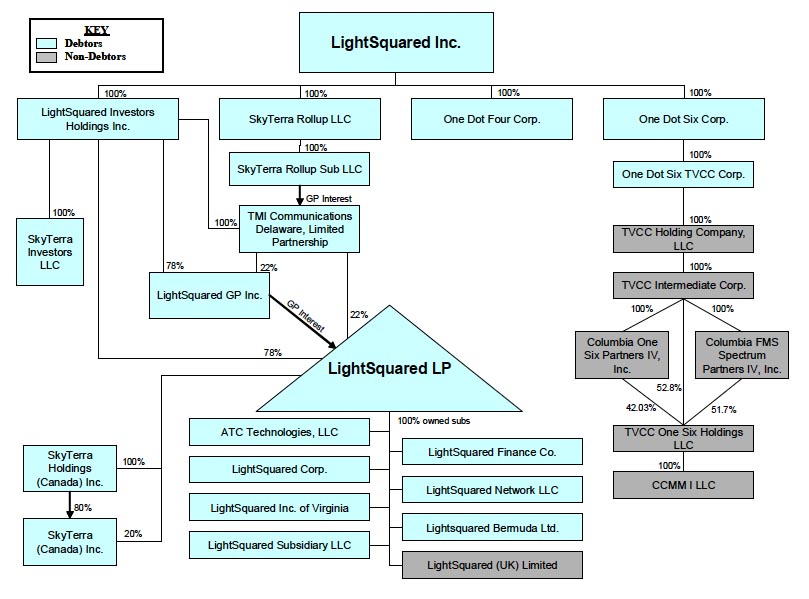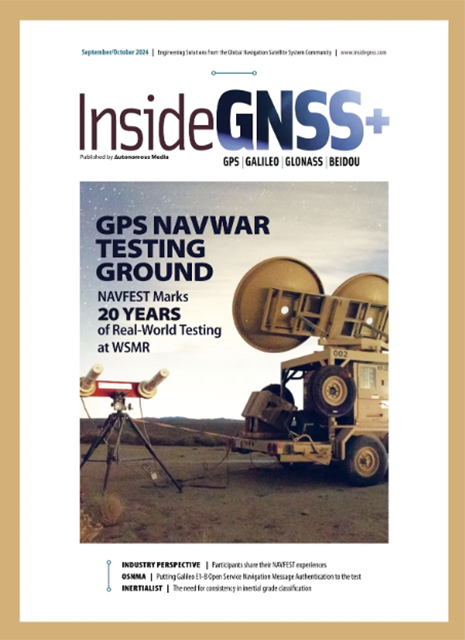Mike Rogers, a key lawmaker in military space policy, appears willing to stick with the current program to build a more capable and cyber-secure GPS ground system despite his profound frustration with schedule delays and cost overruns and a recently revealed report from MITRE Corp. suggesting it be dropped.
The Next Generation Operational Control System (OCX) being developed by Raytheon is essential for the Air Force to be able to fully utilize the capabilities of the GPS III and GPS IIIF satellites. The program is five to six years behind and, according to a March 2017 report from the Government Accountability Office, surged in cost from $3.6 billion in November 2012 to $5.5 billion in September 2016 – a 53.2 percent increase in fiscal year 2017 dollars. The December report by MITRE, obtained and described by Bloomberg News, put the cost at $6.1 billion.
The OCX contract was originally valued at slightly more than $1.5 billion with options, when it was awarded to Raytheon in 2010.
"That program is a perfect example of the problem we have in the Air Force," Rogers (R-Alabama), chairman of the House Armed Services Committee Subcommittee on Strategic Forces, said at today’s forum. "We’ve had that black hole for money for years and it’s still not able to be executed. And show me the person responsible for that. You can’t. It’s all those committees, they’re all pointing at each other. ‘Oh it’s not me; it’s them. It’s not me; it’s them.’ In the meantime we still don’t have the capability and we don’t see an end in sight, and this thing has been incredibly over budget."
MITRE had reportedly suggested abandoning OCX in favor of upgrading the Lockheed Martin ground system currently being used. When asked if he wanted to see the Air Force make more changes to try to reform that program – or to have it try to stabilize and execute on the current program of record – Rogers indicated a need to push forward.
"I think we need to get it right," he told a CSIS forum on the FY19 space budget. "I don’t think we should just stop with what it can do right now. But I don’t see that happening. I’ve been so disappointed in that program."
Rogers shared the stage with Rep. Jim Cooper (D-Tennessee), his committee’s ranking member. The Strategic National Security Space: FY19 Budget Forum was held February 28 in Washington, D.C.
"Properly understood," said Cooper, "the Constitution makes Congress a board of directors. We shouldn’t micromanage. We should look at the big policy decisions and then let capable services implement them. But this is a situation that really is a nightmare. To have satellite capability and no ground communications for over a decade and really no hope in sight – and with no accountability. This would never stand for a second in the corporate world. And the corporate world is not perfect but at least there tends to be accountability."
Cooper, who did not suggest during the forum that OCX should be changed or dropped, agrees with Rogers that there should be a separate Space Corps as a way to elevate and speed military space programs and increase accountability.
"I want to have somebody who owns (OCX) and give them the power to fix it – and the time," said Rogers, "but the Air Force won’t do that."
Both the Air Force and Raytheon have taken issue with the MITRE report.
"The Air Force agrees to disagree with MITRE on some
data and analysis points," Air Force spokesman Maj. William Russell told
Inside GNSS, adding that the service is supporting the Under
Secretary of Defense for Acquisition and Sustainment in a "directed review
of the findings and conclusions."
Russell told Bloomberg that "the Air
Force assesses that Raytheon has made progress" and noted that outside resources
had been added to help keep the program on schedule. There also have been other
significant changes since cost overruns triggered a Nunn-McCurdy breach on June
30, 2016. In the fall of 2016 program managers shifted OCX development to thecloud to enable simultaneous development and testing for multiple
strings of code.
"The report contains multiple factual errors, and because of this, the MITRE team reached inaccurate conclusions regarding the program’s current progress, future schedule, and cost," said Dave Wajsgras, president of Raytheon’s Intelligence, Information, and Services business. "We have communicated our concerns regarding these inaccuracies to both the Air Force and MITRE, and we confidently stand by our ability to deliver the full GPS OCX system within the current budget and by the June 2021 contractual deadline."
"The MITRE review team ‘found little credible basis for confidence in the OCX program’s cost and schedule estimates’ as ‘there are fundamental challenges with Raytheon’s software engineering’ and ‘significant software challenges lie ahead, including full-scale integration and testing.’ It said the system ‘will not deliver’ any capabilities ‘into an operational environment for at least five years.’ " Bloomberg reported.
MITRE spokesman Jeremy Singer said in an emailed response to Raytheon’s criticism that "we stand by our methodology, findings, and independent cost estimate for the OCX report," Bloomberg reported.






